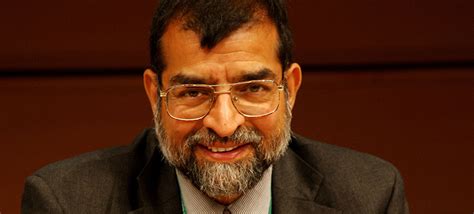A Quote by Nicholas Stern
Adaptation is the only means to reduce the now-unavoidable costs of climate change over the next few decades
Quote Topics
Related Quotes
...the world needs to face up to the challenge of climate change, and to do so now. It is clear that climate change poses an urgent challenge, not only a challenge that threatens the environment but also international peace and security, prosperity and development. And as the Stern report showed, the economic effects of climate change on this scale cannot be ignored, but the costs can be limited if we act early
I have felt for a long time that the pathway to solving the climate crisis is through the building of a massive grassroots army of men and women who will go out there and win the conversation on climate, and persuade businesses, and universities, and towns to switch to renewable energy and to reduce emissions. And the big change from ten years ago is that people are way more receptive, not only to the message that we have to act, not only to the message that now we can act, we have the solutions now - that's the biggest change - but also willing to make a commitment that we will act.
Considering that future generations will be far better off than current generations even after accounting for climate change, it would be more equitable for today's industrialized world to help solve the real problems facing today's poorer developing world than to mitigate climate change now to help reduce the burden on future populations that would not only be wealthier but also technologically superior.
There's real economic costs to climate change - So, Superstorm Sandy led to billions of dollars in damages. The fires out in the west, 70 million dollars a day are being spent in fighting fires that have clearly been exacerbated by drought and climate change. So, people have pointed out the true dollars and cents cost of inaction on climate change.



































